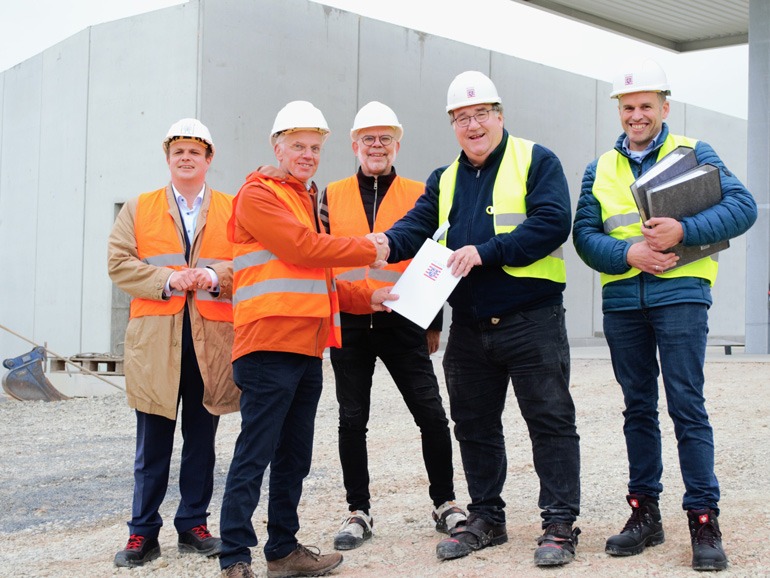ABO Energy has received formal permission under the German Federal Immission Control Act for its groundbreaking green hydrogen pilot project in Hesse, Germany, near the city of Fulda. The project integrates a wind turbine, green hydrogen production, and a hydrogen refueling station equipped with a trailer filling station. District President Mark Weinmeister handed over the permit on-site to Dr. Jochen Ahn, Managing Director of ABO Energy, on 30 September 2024.
The project’s construction has been underway since May 2024, following an early building approval. The ongoing work includes earthworks, civil engineering, pipeline installations, and the construction of foundations, walls, and the roof of the refueling station. Completion of the construction and commissioning is targeted for the first quarter of 2025, with an official opening scheduled for April 2025.
Innovative Local Production of Green Hydrogen
A key feature of the project is its direct connection to renewable energy sources. “The electricity for generating green hydrogen is produced by a wind turbine located two kilometers away, connected to the electrolyzer by a direct line,” explains Dr. Jochen Ahn. “This setup provides an ideal way to produce green hydrogen locally.” To enhance the electrolyzer’s efficiency, an additional 10 megawatts of photovoltaic power will be installed, alongside green electricity drawn from the grid.
Significant Milestone in Regional Energy Transition
This project also marks a milestone for the Kassel Regional Council, as it is the first electrolyzer approved by the authority. District President Mark Weinmeister emphasizes its importance: “The North-East Hesse region plays a vital role in Germany’s energy and transport transition due to its central location. ABO Energy’s project innovatively links these sectors, paving the way for a more sustainable future. I commend the regional council’s staff for their competent and swift approval process.”
Local support has been instrumental to the project’s progress. Mayor Benjamin Tschesnok of Hünfeld, where the project is situated, shared his enthusiasm: “We have supported this innovative concept from the outset. It’s essential to develop solutions beyond conventional electromobility to safeguard the climate and advance mobility for the future.”
Funding and Support
The project is backed by Germany’s National Innovation Programme for Hydrogen and Fuel Cell Technology, with funding totaling 12 million euros from the Federal Ministry for Digital and Transport Affairs. Additional support comes via the German Recovery and Resilience Plan under the European Recovery and Resilience Facilities (ARF) through the NextGenerationEU program. The funding guideline is coordinated by NOW GmbH and executed by Project Management Jülich (PtJ).
This initiative signals a major step forward in Germany’s energy transition, providing a practical and scalable model for integrating green hydrogen into the country’s renewable energy and transport sectors.


